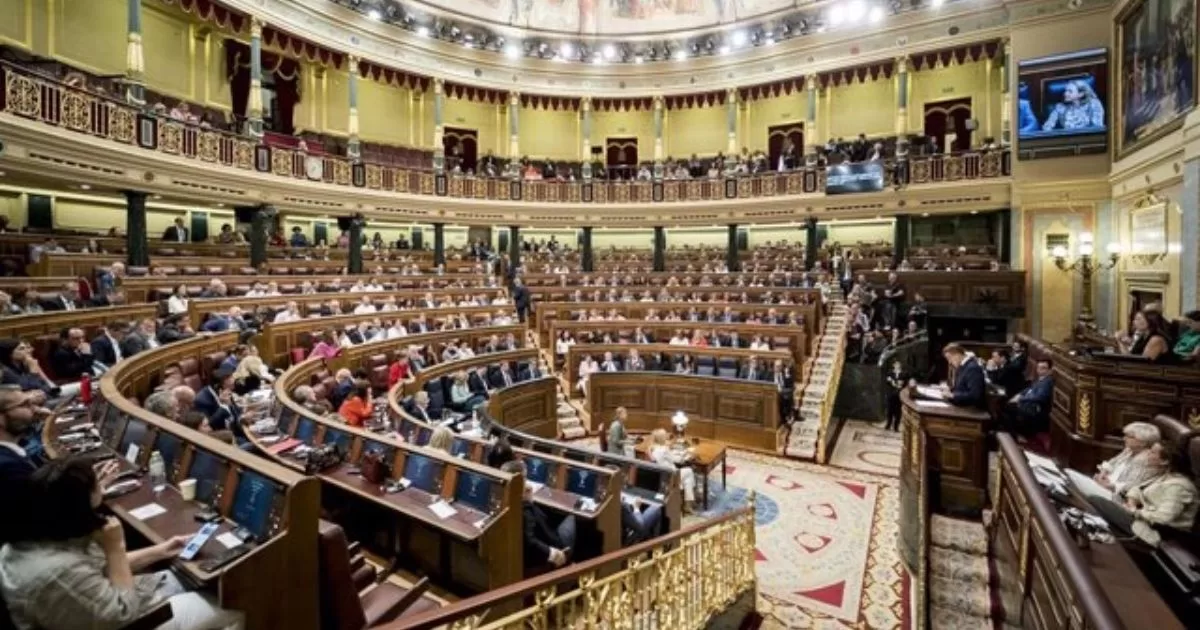The days to come are going to be eventful. This January 10, the government presents its pension reform. A text with high explosive potential: the unions are unanimously against it and, in the polls released so far, the French are suspicious. According to an Ipsos poll released on January 7, 79% of French people say they are opposed to postponing the legal retirement age.
Raymond Soubie, former social adviser to Nicolas Sarkozy, is quite pessimistic. The president of the consulting company Alixio is a consummate specialist in delicate texts. In 2010, he was at the maneuver when the pension reform of the time was adopted, which had led to the passage of the legal age from 60 to 62 years old. How do we manage to pass a reform of this magnitude, avoiding a major social crisis? Interview.
L’Express: In a recent interview with AFP, Edouard Philippe slipped: “The English have Ireland, the Americans have arms, we have pensions”. Do you share this observation?
Raymond Soubie: Like other countries, we have a basic problem which is that of the generation imbalance. We have, particularly in Europe, a demographic imbalance. As the active pay for the inactive, the system is necessarily unbalanced. This situation does not only concern France. So, unlike Edouard Philippe, I would say that pensions are not just our problem. Reform projects have been put forward in Germany, Italy, etc.
If you look back, you will notice that the subject of pensions is not new. In his white paper in 1991, Michel Rocard already spoke of this imbalance of generations. Edouard Balladur’s first major reform in 1994 was an extension of the contribution period to 40 years. Then there was a second reform by François Fillon in 2004, a third by Nicolas Sarkozy in 2010, a fourth by Marisol Touraine in 2014. All these texts were parametric measures which consisted in restoring a financial balance. There are not a thousand ways to achieve this goal: either lower, as some suggest, retirement pensions, or increase contributions, or move the age. There is no way out of this triangle. We have therefore had pension reforms for more than thirty years, which relate sometimes to age – as with Nicolas Sarkozy – sometimes to the contribution period. This is nothing new in our landscape.
Wasn’t he talking more about the opposition to the reforms than about the reforms themselves?
There is indeed a French specificity in the reactions provoked by the reforms. Some people, for example, advise lowering retirement pensions. Let’s stop for a second on this proposition: it would mean that people who think they are contributing for their retirement – even if this is not the case – suddenly see their future pension reduced. Others say companies should be made to pay. But these are already having a lot of difficulties in the current times, which are very unpredictable. Finally, there was a last major reform proposed, systemic. The latter consisted of merging all the schemes so that for one euro contributed, everyone had the same rights. It was an immense reform, which made a clean sweep of the past, which was launched too quickly, without sufficient preparation, and which had to be interrupted. I find that the solution recommended today is therefore the least bad.
How do you put together a text of this magnitude? The unions have already announced unanimously that they are against it.
All unions have been, most of the time, and this for 35 years, opposed to any pension reform. If we had listened to them, there would never have been any reform. I don’t think we can have room for maneuver on their side. What are the risks of the operation? There is the most classic, that of special diets. The first adjustment measures of the special regimes on the general regime took place in 2007, then in 2010. But we are still far from the mark, and their regime is still significantly more favorable. From there, are we going to abolish the special regimes to bring their agents into the general regime? Emmanuel Macron gave the answer. There is no question of it during this quinquennium.
However, you think that the special diets are indeed a risk factor for this reform…
Yes, because the idea now is not to repeal the special regimes, but to adjust them. If we make workers in the private sector work longer and we ask them for a longer period of contribution, it is not illogical, for the sake of equity, to ask employees of special schemes to make a small effort , without however aligning them directly with the general scheme. The measure is currently in the government’s project, and is likely to make them react.
First, because the special regimes have always reacted to their retirement, because they consider that it is an acquired advantage for history, for the difficulty of their activity. It is an identity factor. Then, because it must be seen that many of these houses, in particular the SNCF and the RATP, are today on another formidable front: that of the competition. Metro lines, bus lines, train lines will leave the RATP and the SNCF to move to competitors. It has nothing to do with pensions, of course, but it adds to the difficulties of the climate. For employees of special schemes, it is an attack on their identity. This is the end of the great unity. This is the reason why today they could be on a war footing. These added elements mean that if there is a risk on pensions, it will undoubtedly come first from the special schemes.
What do you think of the way the reform was introduced by the current executive?
One of the big problems that Emmanuel Macron has today is that of timing. Three months ago, he thought of passing this reform with the first text which would be submitted to the National Assembly with a 49-3. It didn’t happen because François Bayrou was against it and the Prime Minister was not enthusiastic. But as Monsieur de La Palice would say, if the president had done it… It would be behind him!
Instead, Emmanuel Macron opened a period of consultation. It gives nothing with the unions for the moment, but allows political negotiations with LR. This is not nothing, at a time when the president’s party is in a minority position in the Assembly. The idea of forming a political majority around his reform makes sense to him. However, he is on the verge of succeeding. His reform can pass thanks to the support of a large part of the Republicans.
You were talking earlier about the question of temporality. What do you think of that of the communication of the executive? Was she the right one?
There was a small mistake by the President of the Republic, which is due to a shortcut. He said that this reform would make it possible to finance other expenses. Nobody really understood that he was making an ellipse, simply saying that if we delay the retirement age, the employment rate of the oldest will increase. And that if the employment rate rises, activity is generally more positive, which leads to more tax and social security receipts. It is a detour of reasoning which served him a little.
Then, the subject of pensions is so complicated that we must constantly brace ourselves on an idea that is very strong and indisputable, that of demographic imbalance. To say that we must take this into account, to specify that the situation has changed, that we are no longer in the baby boom years at all. In summary, we should always repeat the same argument rather than having several more or less scholarly ones, which no one understands anymore.
Let’s look at the precedent of the pension reform led by Edouard Balladur. He ran it in August, and there were no problems. In 1995, Alain Juppé achieved the feat of not having a reform project – he simply said that he was thinking about it – and of triggering a movement in most public transport. Finally, you have the Sarkozy reform in 2010. At the time, the method that was followed by Nicolas Sarkozy was to say: “The age is 62, children, you can tell me what you want, I will not move”. He didn’t move from start to finish, and that had a paradoxical consequence, which was to defuse the movements.
Opinion poll after poll, the French show strong opposition to this reform. Does this worry you?
French opinion today is subject to many irritants. Today, rising prices are more irritating than a retirement plan that will apply in the next ten years. There were also the Christmas strikes. You also have irritants about the threats currently hanging over the economy. The French are therefore worried and not only about pensions. These should not constitute a detonator that would serve as a catalyst for other anger.
That being said – and I could be completely wrong – I think that another subject is going to be difficult, and probably more complicated than that of pensions: that of wage negotiations, in 2023. Tensions are rising on this subject between the companies and unions, and I believe that this is at least as much to watch as the pensions affair.
You mentioned the strike movement in December. Originally, it was launched by a group of controllers outside the traditional unions. Is this element a point of attention for you?
This is a very strong point of attention, because it concerns the issue of dialogue with the unions. This has been weakened in recent years. This is not only linked to the will of the President of the Republic, but to the state of the unions themselves. When you look at the Cevipof surveys over ten years, you see that the consideration of the French for the unions has dropped a lot, as for the politicians. They do not have the impact on French society that they had ten years ago. When you talk to union leaders in companies, many tell you that they have difficulty finding successors. The younger generations no longer seek to take union office. It’s not so much in tune with the times, and they come out of it weakened. Add to this the development of autonomous movements beyond the control of the unions…
Another thing has also changed since 2010: the appearance of black blocks. This is a focal point! In 2010, we had three monster demonstrations, which brought together more than a million people. But these mobilizations were peaceful. People marched peacefully. The appearance of black blocs in the years 2015-2016 changed the face of the demonstrations, which made them a risk factor in themselves. Their progress can pose a problem, which was not at all the case in 2010.



